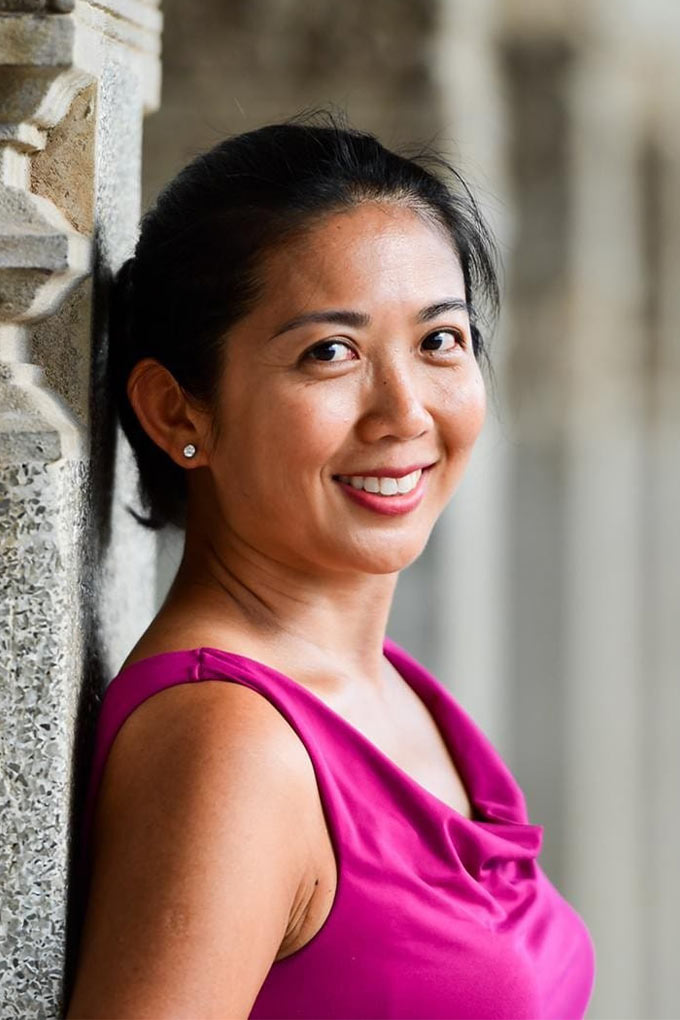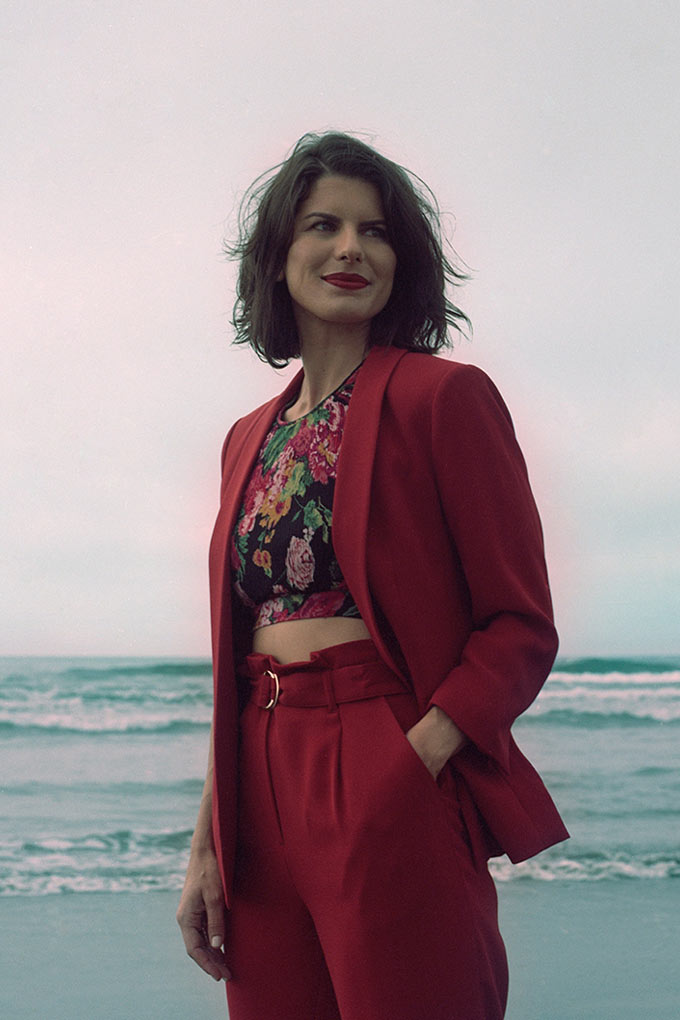Throughout history, harmful stereotypes challenging the validity of attention deficit hyperactivity disorder (ADHD) have been rife. Associated largely with children, the disorder—which impacts behaviour and can present itself in a number of ways including impulsiveness and difficulty with social interaction—is still commonly overlooked or misdiagnosed in adults. And yet, according to the ADHD Institute, it affects 2.8 per cent of adults worldwide. Thankfully, though, stigmas are starting to shift, paving the way for honest, open dialogue.
This is partly due to organisations such as ADHD Foundation and ADHD Babes, which is targeted towards Black women and non-binary people. Social media has also become a powerful tool in helping amplify the community, with TikTok videos explaining the disorder and its complexities gaining billions of views (although seeking guidance from a health expert or doctor is always advised) and Twitter acting as a virtual safe space for people to express their relief at finally being diagnosed, enabling them to build relationships with others who share their experience.
But there is still more to be done. To help spread further awareness and demystify the disorder, six people share what it’s like living with ADHD in 2021.
1. Moonlake Lee, 52, community builder, Singapore
“I was diagnosed with ADHD at 50. My daughter was diagnosed a year earlier as a teen. When I realised there was a genetic link for ADHD, I wondered whether I had ADHD. It explained a lot of things in my past: The need to pack my schedule to the brim, inability to sit still, struggles with poor working memory and constant distraction by things around me. I had prided myself on my multi-tasking ability and to-do lists, but these were actually adaptations I had picked up over the years.

“I did not fit the ADHD stereotype–I was a ‘mature’ woman, organised and had four degrees. There were people who disbelieved me when I shared about my ADHD. I debated whether I should seek a professional diagnosis. Due to a period of overwhelm when I had too many critical life and work events happening at the same time, I decided to see if a diagnosis and medication would help.
“The biggest benefit about finding out I had ADHD was my improved relationship with my husband. There was finally context, understanding and compassion for the issues that had been a source of conflict over the years–time blindness, forgetfulness and jumping topics during conversations. Previously, all these had been perceived as character flaws. I am happy that he is fully supportive of what I am trying to do for the ADHD community in Singapore through Unlocking ADHD.”
2. Laura Brosnan, 33, journalist, London, UK

“I was diagnosed a few months ago as having ADHD and my initial thoughts of getting the diagnosis were just a huge relief—it took years to get a formal diagnosis after trying to get several doctors to take my symptoms seriously. At university, I’d leave all my essays till hours before the deadline, found reading impossible and my focus was starting to impact my work and life. At the time, I put that down to trying to heal from losing my mum as a teen, but I later found out that is also connected to ADHD and its relationship with your mood, and Rejection Sensitive Dysphoria (RSD) [an intense emotional response caused by the perception that you have disappointed others]. Looking back now, everything makes a lot more sense.
“At first, I was put on medication for something completely different, which made me feel like a zombie. Being on the right medication feels great—I have so much more energy, can channel my focus and feel balanced. It’s not all perfect, but I feel so much more present and alert. When I’m not on medication, my focus lasts 60 seconds—my mind feels like it has 150 tabs open all at once so I regularly have a lot of overpowering ideas and thoughts, and I feel overwhelmed. The disorder also impacts my short-term memory and expressing emotion can be difficult.”
3. Alexis Wilson, 29, social media editor and writer, Los Angeles, US
“I was 10 when I was diagnosed. My mum was a social worker and had me tested because she realised I was doing homework and completing assignments but not turning them in, which in many ways, I still struggle with as an adult. I’m still working with my therapist on being kinder to myself when it comes to struggling with executive dysfunction. Opening up the conversation on being ‘lazy’ versus unable to complete tasks would be extremely helpful for many of us living with ADHD. It can be a double-edged sword, but there have been a lot of times at work or in my personal life that it’s come in handy—if I could figure out how to only hyperfocus when I needed to, I think I’d be pretty close to being invincible!

“It feels very ‘new’ to see people talking openly about living with ADHD and other mental health issues as an adult and as a woman—especially as a Black woman—and it feels like the conversation is shifting to be more inclusive of those diagnosed later in life, which is excellent and extremely important. It’s taken me a long time to figure out what systems work for me, which is one of the reasons I started my newsletter, Mentally Shrill. I don’t think enough people are willing to say, ‘Hey, I’m living with something that impacts my daily life and I’m struggling.’”
4. Margaux Joffe, 36, founder of Kaleidoscope Society, San Francisco, US
“Getting diagnosed with ADHD changed my life. I always felt different, but I never thought it could be ADHD. I was misdiagnosed with depression and anxiety at 18, therefore it was a surprise and a relief to find out there was a name for what I was experiencing. After the initial news, I began a long journey of acceptance and healing through therapy, learning from other women with the disorder, and the disability community as a whole. A common misconception is that people with ADHD can’t pay attention, but it’s a ‘dysregulation’ of attention.

“Most of the resources I found were geared towards parents of young children, so I started my organisation Kaleidoscope Society. The majority of women with ADHD are undiagnosed until adulthood, creating what has been called a ‘lost generation of women’. We need better support systems for adults navigating the disorder, especially for women, non-binary folks, people of colour and people with other disabilities. If you look at the data, young women with ADHD are three to four times more likely to attempt suicide and two to three times more likely to report injuring themselves according to the American Psychological Association. Almost half have seriously considered suicide at some point in their lives. Women with ADHD face other challenges such as higher rates of eating disorders, substance abuse and incarceration.
5. Tanya Compas, 29, youth worker, London, UK
“During lockdown, I joined TikTok and started seeing videos around ADHD, which I related to. I then saw a lot more Black women and people talk about the disorder on Twitter including Stephanie and the amazing group ADHD Babes [an organisation that supports Black women and non-binary people who have either diagnosed or suspected ADHD]. From there, I started googling symptoms and got tested. ADHD is evident in every aspect of my life, both the good and the bad. The emotional side of it, particularly RSD, is the worst part. It feels like you have a bully living in your head that tells you you’re incapable and that everybody hates you.

“I have my youth organisation Exist Loudly, which supports Black LGBTQ+ youth in the UK. I’ve always been a great youth worker because of my ADHD, but since my diagnosis and taking time to reflect, it’s turned me into an even better youth worker. Workplaces and employers need to understand and learn about ADHD as there is so much shame around it as well as finding accessible therapy or counselling.”
6. Indhu Jayabaskaran, 22, university student, Singapore
“In school, my teachers would describe me as someone with potential, if only I’d be more responsible, do my work, and be consistent. These seemingly simple things took effort and I started falling behind. I would try to focus on what I was supposed to do, only to get distracted. Everyone seemed to be moving on with their lives while I remained stagnant, facing one failure after another.

“When I reached university, everything fell apart. I just could not keep up with the demands. It wasn’t just the content that was difficult. Time management, deadlines and even socialising took effort. When I got diagnosed with ADHD, I felt more resentment and loss than relief. Why had nobody realised sooner? Looking back, the signs were obvious enough.
Since my diagnosis and getting the right help, I’ve had many changes in my life. Sorting out my priorities and choosing what I focus my time on comes easier to me. Sometimes, I’m amazed at the fact that my mind finally can stay focused on one thing, and how long it took me to realise toggling between ten things was not normal. As for my mental wellness, I’ve grown to slowly appreciate the value in confiding and seeking help from others, and just taking things at my own pace.”
You are not alone. If you suspect you may have ADHD and need a professional diagnosis, you have two options, according to Lee: “Head to a polyclinic and ask for a referral to IMH or one of the other restructured hospitals. This enables you to access psychological and psychiatric care at a subsidised rate.
“You also have the option to be treated as a private non-subsidised patient. There are many private clinics in Singapore. Only psychiatrists are able to prescribe medication. Psychologists can provide assessments and therapy. For convenience, some clinics have a team of psychiatrists and psychologists under one roof.”
For community support, visit Unlocking ADHD. For parents with ADHD children, sign up as a member of Spark Singapore.





